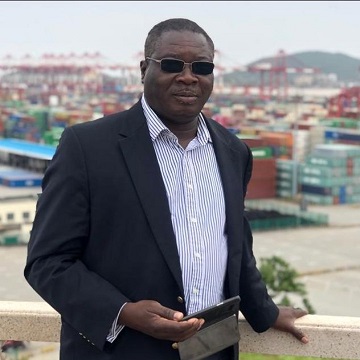The inland waterways hold a huge economic development potential for Nigeria, if only a maritime technical development initiative is put in place to properly utilise the inland waters.
That is a strong view by marine engineer, Emmanuel Ilori, who argued that with about 10,000 kilometers of water within Nigeria, the nation should have looked beyond being import-dependent.
He faults the building of cities around roads when if they are developed around the waterways, there would be robust economic benefits, both for property ownership and trade.
Looking back to a bit of history, Ilori mentions the fact that a striking action by the British when they first came to Nigeria, was to establish the movement of goods through the inland waters and ensured a connectivity along the coastal areas.
He said: “The inland waterways is the biggest sector that we have not addressed. Look at the population of Nigeria, because we are spending huge amounts on road development. We are developing cities around our roads. Ten thousand kilometres of water that is within the nation, and we are not developing it.
“China developed itself around its inland waterways system, and the UK too. Countries that do not have the inland waterways system, what did they do? They even open their land to have water to develop their economy because, it is easier, more economical, more efficient to move more goods using the water. That is how we can look at it.
“When the White men came to Nigeria, what did they do? They landed in Lagos and used our waterways to develop Nigeria. Is it not true? They came in, and then looked at the waterways up to Lokoja, and they were able to open up to Niger, up to Onitsha. So, they were able to open Nigeria, and were able to make their work relatively easier. They only added railways later to improve things. They added the small road networks, but they were able to move the heavy goods through the water. But now, we are not. We are building cities around our road network.
“We are congesting the road network, it is no more efficient. We are making our road network unsafe. We are creating hazards for ourselves. You can look at the myriad of problems. Whereas, if we go to the utilisation of God-given gift of the inland waterways network, look at where Nigeria will be today. Even in terms of property development.
“In developed areas, properties along the rivers are probably most expensive, but at the moment we are not even thinking of that. Take Lagos for example, Lagos is suddenly congested, whereas we have a huge network of waters that we can put those goods into and then we can begin to make Nigeria prosperous, and we are saying Nigeria is not prosperous? Whereas we are sitting hugely on billions of Dollars, simply because we are not using our technically competent developed people to help to drive these various initiatives.”
He still sees challenges of limitations in the oil and gas sector, which is still driven by water-based resources that are yet technically available in Nigeria.
He thinks that the Nigerian Content Development and Monitoring Board (NCDMB) has been making good efforts in the oil and gas sector, but it is just like a drop in the ocean, until the nation puts in place a maritime technical development initiative.

